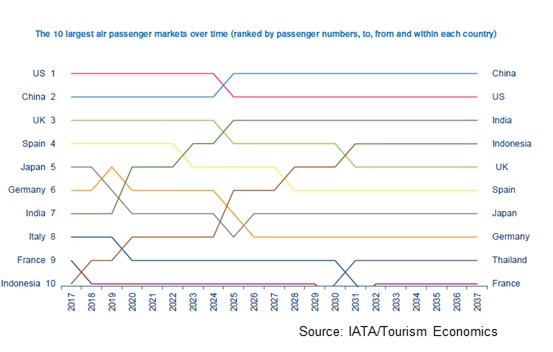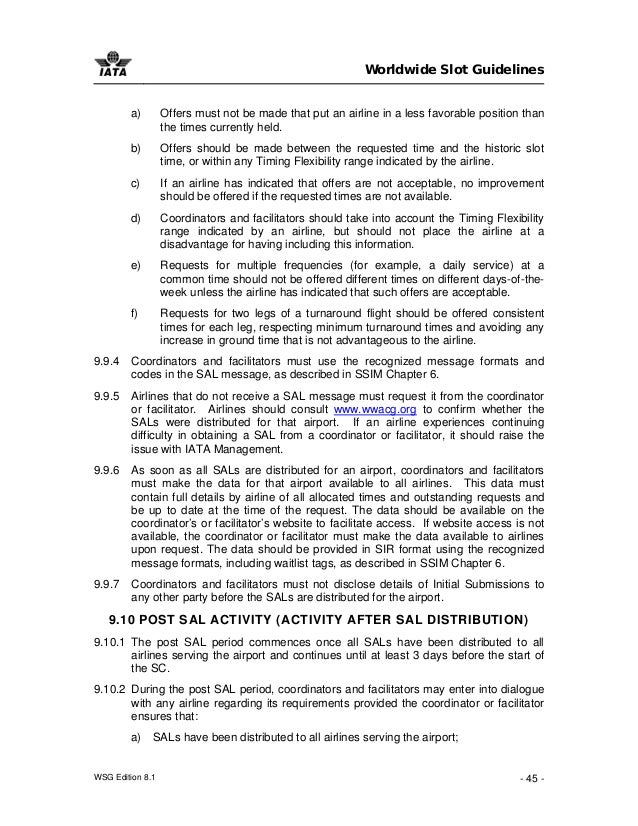Worldwide Slot Guidelines 2019
- Worldwide Slot Guidelines 2019 Printable
- Worldwide Slot Guidelines 2019 2020
- Worldwide Slot Guidelines 2019 Pdf
In 1993, common rules for the allocation of slots at EU airports were introduced in order to ensure that airlines have access to the busiest EU airports on the basis of principles of neutrality, transparency and non-discrimination (Based on the principles governing the system of slot allocation (IATA Worldwide Scheduling Guidelines)). At EWR, JFK, LAX, ORD, and SFO, the FAA generally follows the International Air Transport Association (IATA) Worldwide Slot Guides (WSG) to the extent they do not conflict with U.S. Laws, rules, or procedures. WSG is a set of standards and best practices developed by IATA Member airlines along with the airport coordinator and facilitator. In September 2019, ACI World, IATA and WWACG submitted a joint paper to the 40th ICAO Assembly asking them to note the progress in the strategic review, the new WASG governance structure, and the industry’s commitment to engage with States to ensure the global slot guidelines meet the needs of citizens, airlines and airports in terms of. Worldwide Gaming is a trusted supplier of slot machines and casino equipment and we provide first class support. Slot Machines for Home Use The United States has a patchwork of laws governing the sale and ownership of slot machines - from outright bans, to made prior to a. The monument is, therefore, proof of an existing link between secret societies, the world elite and the push for a New World Order. The Monument Made of Pyramid blue granite, the Georgia Guidestones are meant to withstand the test of time and to communicate knowledge on several levels: philosophically, politically, astronomically, etc.
/TheAlchemistCover-5456318ceb53461b9bb6081ed8b99252.jpg)
Authors: Hanna Schebesta and Giovanni Sartor
European University Institute


Worldwide Slot Guidelines 2019 Printable

Worldwide Slot Guidelines 2019 2020

Worldwide Slot Guidelines 2019 Pdf
Abstract: This case study explores the Worldwide Slot Guidelines (WSG), which represent a set of agreements made under the auspices of the International Air Transport Association (IATA) in order to allocate airport capacity. The right to use airport capacity for the purpose of takeoff and landing operations at airports is commonly called slots, with each airport having a finite amount of airport capacity. Thus, the slot allocation process is one of resource management: the WSG were developed as a global industry standard to address a key constraint in the aviation domain. The actual process of slot allocation is complex and involves organizations and stakeholders at multiple levels, all falling under the umbrella of IATA, a trade association representing 240 airlines. It designates particularly congested airports, creates roles of airport coordinators, and establishes management principles for slot allocation. Because they manage a valuable economic resource, the transparency and independence of coordinators is of particular concern: this has resulted in the institutionalization of a negotiating process to ensure accountability among key stakeholders. Through an examination of the history and key points of change in the process, the WSG case presents an example of private sector coordinated resource management.